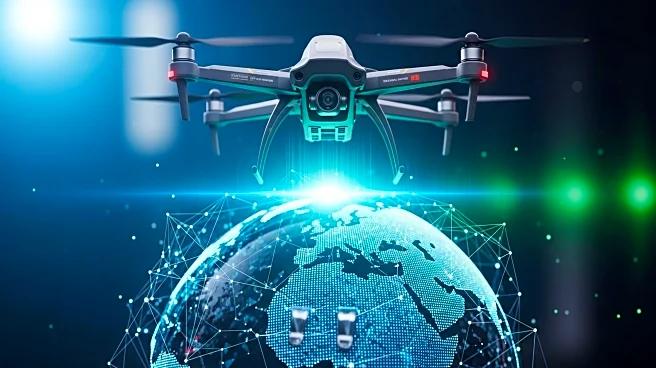What is the story about?
What's Happening?
The landscape of global terrorism has significantly evolved since the 9/11 attacks, with terrorist organizations like ISIS, al Qaeda, Hamas, and Hezbollah increasingly utilizing advanced technologies and digital networks. These groups are leveraging the internet, encrypted messaging apps, and artificial intelligence to conduct operations that are harder to detect. The shift from centralized operations to decentralized, tech-driven strategies has made counterterrorism efforts more complex. The internet and AI have expanded the capabilities and reach of these groups, allowing them to spread propaganda, recruit individuals, and plan attacks more efficiently than ever before.
Why It's Important?
The evolution of terrorism tactics poses a significant challenge to national security and global stability. The use of technology by terrorist groups has increased their ability to operate across borders, making traditional counterterrorism strategies less effective. This development necessitates a continuous adaptation of security measures, including enhanced public-private partnerships with tech companies, AI monitoring, and international cooperation. The potential for increased recruitment and radicalization through online platforms underscores the need for vigilant monitoring and proactive measures to prevent future attacks.
What's Next?
Counterterrorism strategies must evolve to address these technological advancements. Governments and security agencies are likely to increase collaboration with tech companies to monitor and mitigate the spread of extremist content online. There may be a push for more stringent regulations on digital platforms to prevent their misuse by terrorist organizations. Additionally, international cooperation will be crucial in developing comprehensive strategies to combat the borderless nature of modern terrorism.
Beyond the Headlines
The ethical implications of increased surveillance and monitoring of digital communications are significant. Balancing privacy rights with security needs will be a critical challenge for policymakers. The use of AI in counterterrorism also raises questions about accountability and the potential for misuse. Long-term, the integration of technology into terrorism strategies may lead to shifts in global power dynamics, as nations with advanced tech capabilities gain an edge in security operations.















